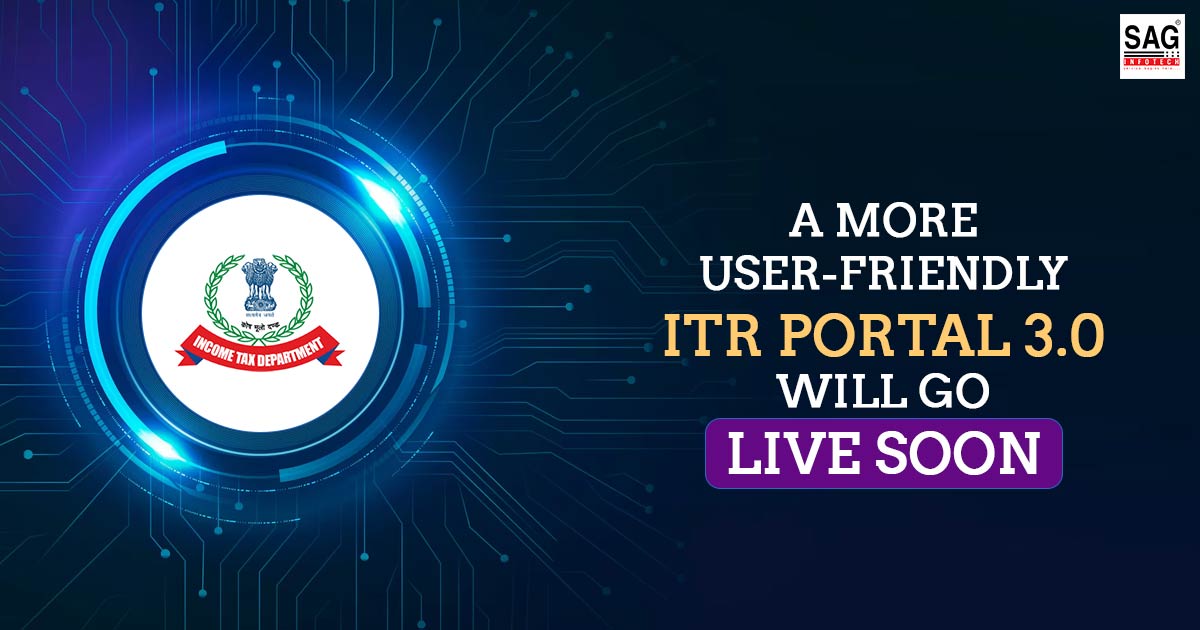
For income tax, the online e-filing ITR portal will be processed with a revamp via substantial amendments effective for taxpayers. The tax department’s internal circular which is not publicized dated October 8, 2024, expressed, “The operations phase of the existing Integrated e-filing and Centralised Processing Centre (IEC) 2.0 is coming to an end and the process of bringing in a new Project, Project IEC 3.0 (that shall replace the existing Project IEC 2.0) has already been initiated.”
How Can the New 3.0 Portal Simplify ITR Filing for Taxpayers?
Under the internal circular cited before the tax department initiated the IEC project proposes an e-filing platform that permits the assessees to electronically file their ITRs, submit statutory forms, and utilize various other services.
A crucial IEC project element is the Centralised Processing Centre (CPC), which is accountable for processing the submitted ITRs via the e-filing portal and ITBA. In addition to the above, the IEC furnishes a Back-Office (BO) portal, which is utilized via the field officers to access taxpayer filing and processing data, the Income Tax Department described in its internal circular.
The department’s internal circular mentioned that Project IEC 3.0 is envisaged to furnish a continuation of the services rendered by Project IEC 2.0 and to place a rectified system to ensure a secure and user-friendly environment.
The Tax Dept is Asking for Public Recommendations Before Launching ITR e-Filing 3.0 Portal
In the internal circular, the income tax department mentioned that Project IEC 3.0 shall secure a far-reaching impact on the working of the department and for the taxpayers and the common public in the forthcoming years. It is significant for the tax department to have the opinions and recommendations from the ITR portal users and other stakeholders to make the IEC 3.0 project effective for the taxpayer.
It is good to take suggestions from the distinct project IEC users/stakeholders and receive their opinions/views/suggestions concerning the good features/deficiencies of the current Project IEC 2.0 along with the tangible rectifications that might be incurred in IEC 3.0, tax department cited in the internal circular.
It was mentioned by the income tax department that a committee that an officer is leading not below the CIT rank must be established within a week of the order on October 8, 2024. The same committee would be liable for collecting the opinions.
Views, and recommendations via the department officers, tax professionals, taxpayers, and other stakeholders in their respective regions. The Income Tax department has directed that the replies from this committee must be emailed by November 30, 2024.
It was cited by a tax expert that the transition from IEC 2.0 to IEC 3.0 may draw a user-friendly experience for all the stakeholders.
The objective of Project IEC 3.0 is to induce high-speed information technology which would allow dynamic ITR processing and hence the taxpayers may be allowed to obtain faster refunds if any. It is indeed anticipated that with the start of the updated technology in IEC 3.0, the taxpayer’s grievances may decrease.
There must be a tight check of the quality of data in IEC 3.0. In IEC 2.0 the taxpayers along with the professionals suffered from issues in downloading the previous year-filed ITR Forms, downloading 26AS, server-related failures, challan payment failed issues, etc which can be rectified in IEC 3.0.
It is indeed anticipated by a person at the most if Integrated e-filing and centralized e-processing centres are upgraded to suit the requirements and quantity of rising the taxpayer base. Time and again the CAAS has repeated in its representations that none of the e-commerce platforms crash in the festive sale offers in which the ITR e-filing portal sees the issues.
A writ was due before the Hon’ble Gujarat High Court filed via the Chartered Accountants Association Surat concerning the issues in the income tax portal. Subsequently, if wisdom prevails and the portal has been upgraded within the time then not merely hardships but indeed distinct litigations can be averted, as per the Chartered Accountant Hardik Kakadiya, President, Chartered Accountants Association, Surat (CAAS).








